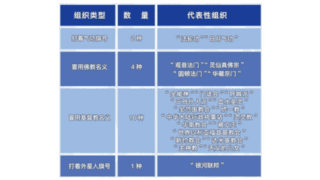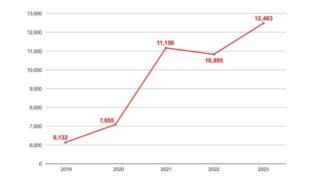Arrest campaigns of CAG members intensify, as the CCP employs high-tech surveillance tools, incites residents to report on believers who have nowhere to hide.
by Li Mingxuan
The Church of Almighty God (CAG) is the largest Chinese Christian new religious movement that has been subjected to brutal oppression since its foundation in 1991. In 2018, nearly 24,000 CAG members were persecuted simply because of their beliefs and engagement in routine religious activities like attending gatherings and preaching the Gospel. The nationwide campaign against the Church is continuing in 2019, the government using a variety of means to monitor, track down, and suppress CAG believers.
China’s eastern province of Shandong is one of the areas where the CAG has been hit most severely; mass arrest operations have been implemented there since spring. Bitter Winter visited the province to learn more about the situation.
Table of Contents
Reporting boxes set up in every village
This April, the county-level city of Gaomi launched a comprehensive special operation to crack down on xie jiao, Falun Gong and the CAG being the primary targets. Subsequently, notices about the campaign to suppress these religious groups have been posted in every village under the jurisdiction of the city, accompanied by reporting boxes where residents could leave anonymous tip-offs about believers. Special phone hotlines have also been set up.


In China, any independent religious movement either regarded as hostile to the CCP or growing too rapidly, could be included in the list of the xie jiao. Being active in any such group is treated as a crime, punishable with a jail penalty of three to seven years “or more,” under Article 300 of the Chinese Criminal Code.
In order to encourage villagers to inform on believers, the reward notice states that snitches can receive from 500 to 3,000 RMB (about $ 71 and 425) for every lead that is reported and verified.
A village official told Bitter Winter that apart from installing reporting boxes, the government has also mandated that five to eight anti-religious slogans be spray-painted in public places of the village. The measure is intended to deter the masses from participating in religious activities. “It costs 100 RMB (about $ 14) to spray-paint a slogan on the wall. It worries me since the village committee doesn’t have any money,” the official complained.
He also expressed criticism over the amount of workforce and financial resources the government had invested in cracking down on religion. “It’s a dictatorship. The CCP is now retreading the path of the Cultural Revolution, with the religious belief being linked to politics. If the Communist Party deems you objectionable, no matter whether you’re right or wrong, they will accuse you of a crime and punish you. Xi Jinping is even more ruthless than Mao Zedong!” the official said.


High-tech used to track down and control believers
A police officer from Qingdao city told Bitter Winter that The Church of Almighty God is growing too rapidly now, and its believers should be monitored wherever they go. For this reason, the state is spending a lot of money to install HD surveillance cameras and facial recognition systems across China, the officer said.
He also revealed that with the help of surveillance equipment, authorities in the county-level city of Jiaozhou ascertained up to 400 households that are suspected of being religious meeting venues. By thoroughly examining footage, they noticed that groups of people have been entering and leaving these locations at fixed times every week.
“The police have known this for a long time. They’re just waiting for the government to order them to conduct a unified arrest operation. When the time comes, no one will be able to get away,” the officer said.
A government insider in Heze, a prefecture-level city with over 8 million inhabitants, revealed that specially-assigned personnel had been sent to track down CAG believers. Each of these personnel rides an electric scooter, with hidden surveillance cameras installed on the handlebars or headlights. As soon as a tracker “locks in” on a meeting venue, he will leave the scooter parked at its entrance. Since the hidden surveillance cameras are connected to the tracker’s mobile phone, he can follow every move believers make.
On June 15 alone, 52 CAG believers in Heze were arrested after being surveilled.
Village police and grid administrators employed for surveillance
In rural areas where religious activities are more prevalent, village police and grid administrators have become another tool to investigate and report those who believe in God.
According to a police officer from a village under the jurisdiction of the port city of Yantai, in March, they received an order to investigate rental apartments in the area, as well as keep an eye on visitors to the village. Falun Gong practitioners and CAG believers were indicated as targets. As soon as police discover a believer, they must register his or her full name, ID card number, phone number, contact address, as well as all information about their family, relatives, and friends. The information about religious believers who have been arrested and released within the past five years must also be registered.


According to some reports, 138 police officers have been assigned to one town alone under the jurisdiction of Qixia, a county-level city administered by Yantai.
A set of detailed training rules for grid administrators to monitor and report religious events.
A long line to catch a big fish
To uncover information about more believers and places of worship, the CCP is intentionally placing under secret surveillance people that are released from custody, having served time for their faith, hoping that they will lead them to larger groups of fellow churchgoers.
According to a source working in public security, every arrested CAG believer is secretly followed after release from detention. The CCP refers to this method as “using a long line to catch a big fish.” In other words, by following one CAG member, the government can get a clear picture of other believers and the church to which they belong before they execute an arrest operation.









